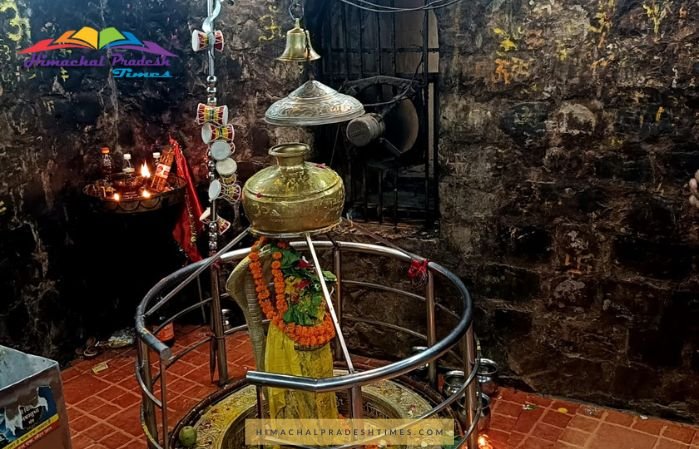Introduction: A Sacred Time of Devotion
Suppose you’ve ever felt a shift in the energy of the atmosphere during July and August, especially in India. In that case, it’s likely because of Shravan Month—a time considered deeply holy and spiritually charged in Hinduism. Known as Sawan, this month holds a special place in the hearts of devotees, especially those who worship Lord Shiva.
During Shravan, temples come alive, mantras fill the air, and people of all ages take part in rituals, fasts, and prayers with unmatched devotion. But what makes this month so special? Let’s explore the beauty, meaning, and spiritual richness of Shravan in a simple and heartfelt way.
The Myth Behind Shravan: Lord Shiva’s Selfless Act
Let’s start with the legend.
Long ago, when the gods (Devas) and demons (Asuras) churned the ocean in search of nectar, something dangerous came out first—a deadly poison called Halahala. No one knew what to do, and the universe was at risk.
That’s when Lord Shiva stepped in. Out of love and responsibility for all creation, he drank the poison and held it in his throat to save the world. His throat turned blue, and he became known as Neelkanth (the blue-throated one).
This powerful story is remembered and honored throughout Shravan. That’s why this month is considered the most sacred time to connect with Lord Shiva.
Why Shravan is Lord Shiva’s Favourite Month
In Hindu tradition, we believe that praying to Lord Shiva during Shravan brings quick blessings. It’s a time to:
Ask for peace and protection
Let go of negativity and bad karma
Deepen our faith and spiritual discipline
The Mondays of Shravan—called Shravan Somvars—are especially powerful. People fast, visit temples, and chant Shiva mantras with heartfelt devotion.
Rituals That Make Shravan So Special
1. Shravan Somvar Vrat (Monday Fasting)
Every Monday in Shravan is like a festival. Devotees:
- Wake up early and take a holy bath
- Visit Shiva temples and perform Abhishekam (ritual bathing of the Shiva Linga)
- Offer milk, water, honey, and Bel leaves
- Chant “Om Namah Shivaya” or Maha Mrityunjaya Mantra
Fasting on these days is not just about avoiding food—it’s about focusing the mind and cleansing the soul.
#2. Kanwar Yatra – A Journey of Faith
If you’ve ever seen people dressed in saffron carrying pots of water on their shoulders, you’ve seen the Kanwariyas. These devotees walk miles to collect Ganga Jal (holy water) from the river Ganga and offer it to Shiva temples.
They don’t wear shoes, don’t rest in ordinary places, and chant “Bol Bam” with every step. It’s not just a pilgrimage—it’s a powerful expression of faith and love.
#3. Spiritual Practices and Chanting
Shravan is a perfect time to slow down and turn inward. Many people:
Read stories from the Shiva Purana
Spend time meditating or attending satsangs (spiritual gatherings)
Chant Shiva mantras daily for peace and protection
You don’t have to be a scholar—just chanting “Om Namah Shivaya” with a pure heart is enough to feel closer to the divine.
Festivals That Add Joy to Shravan
Shravan is not just about fasting and rituals—it’s also a time for joyful celebrations. Some important festivals include:
-
Nag Panchami – Worship of snake gods, especially related to Lord Shiva
-
Raksha Bandhan – A beautiful festival celebrating the bond between brothers and sisters
-
Hariyali Teej – Celebrated by married women for the well-being of their husbands
-
Janmashtami – Though not always in Shravan, it often falls close, marking the birth of Lord Krishna
These festivals bring colour, songs, and togetherness into this already vibrant month.
Special Role of Women in Shravan
Women, especially newly married ones, observe Mangala Gauri Vrat on Tuesdays during Shravan. They pray for:
- A happy and long married life
- The well-being of their family
You’ll often find women visiting temples together, singing bhajans, and performing group pujas—creating a beautiful sense of sisterhood and devotion.
Astrological Importance
In astrology, Shravan is linked to the Shravana Nakshatra, which means “to hear or listen.” It’s believed that:
- The month supports spiritual learning and deep listening to the divine
- Mantras chanted during this time have more power and purity
It’s a time when the cosmic energy is at its highest for spiritual growth
Do’s and ❌ Don’ts of Shravan Month
✅ What to Do
- Wake up early and take a holy bath
- Visit Shiva temples regularly
- Offer Bel leaves, milk, and Ganga water to Lord Shiva
- Follow a vegetarian diet and avoid onions and garlic
- Chant mantras and meditate daily
What to Avoid
- Eating non-vegetarian food or drinking alcohol
- Cutting hair or nails on Mondays
- Wearing black clothes
- Using foul language or negative thoughts
- Using leather items or hurting animals
Conclusion: A Sacred Invitation
Shravan is not just about rituals. It’s an invitation to connect with Lord Shiva, reflect on your inner self, and live a life of balance and devotion. Every mantra, every fast, every offering is a step closer to the divine.
So this Shravan, let your heart be full of faith, your mind filled with peace, and your soul open to grace.
Har Har Mahadev! 🙏
May Lord Shiva bless you with health, happiness, and spiritual light.







